The Samsung 950 Pro PCIe SSD Review (256GB and 512GB)
by Billy Tallis on October 22, 2015 10:55 AM ESTMixed Random Read/Write Performance
Most real-world use consists of a mix of reads and writes, and interleaving the two often poses a particular challenge to drive controllers. This mixed random access test is conducted across a 16GB span of the drive, but on a full drive and with a queue depth of 3.
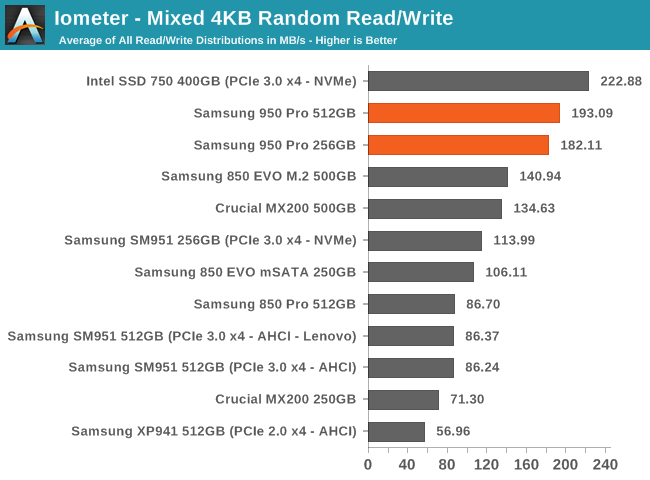
Mixed random access seems much improved over Samsung's earlier M.2 drives, and the 950 Pros fall behind only the Intel SSD 750. The 512GB drive is well behaved here and surpassing the 256GB drive as it should.
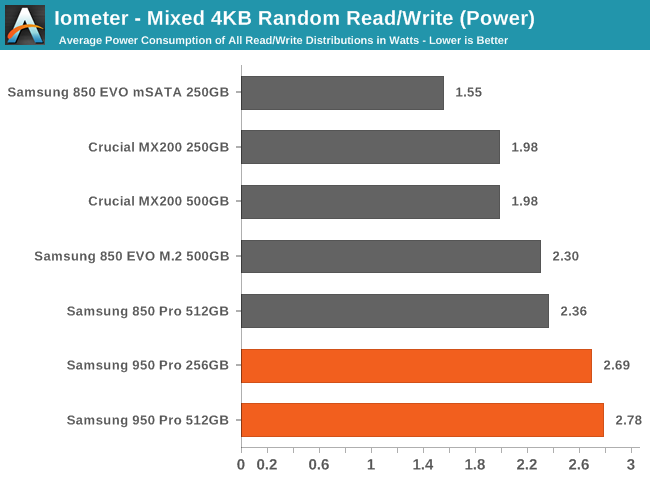
In this case, the higher power consumption of the 950 Pro is very well justified by the higher performance.
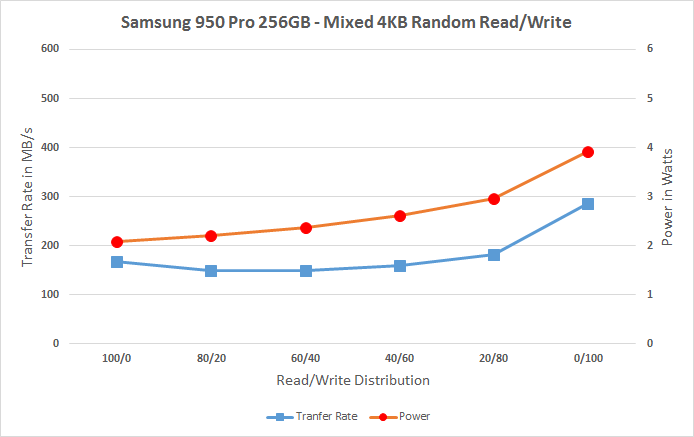 |
|||||||||
There's not much variation across the different workloads. Performance hardly drops during the middle of the test where many controllers have trouble with a balanced mix, but on the other hand the performance at either end of the test is nothing spectacular. Power consumption climbs hand in hand with the proportion of writes, but is accompanied by some increasing in overall data rate.
Mixed Sequential Read/Write Performance
The queue depth of 3 is sufficient for many drives to perform very well at either end of this test, while testing 100% reads or 100% writes. In between, performance typically suffers greatly, and that's where the winners and losers of this test are determined. Anything that's duplicating duplicating or transforming a large amount of data on the drive will produce I/O patterns similar to this test. Creating a System Restore snapshot, backing up files to a different directory on the same drive, and file compression can all produce interleaved reads and writes of large blocks of data, though not necessarily fast enough to be limited by the drive's performance.
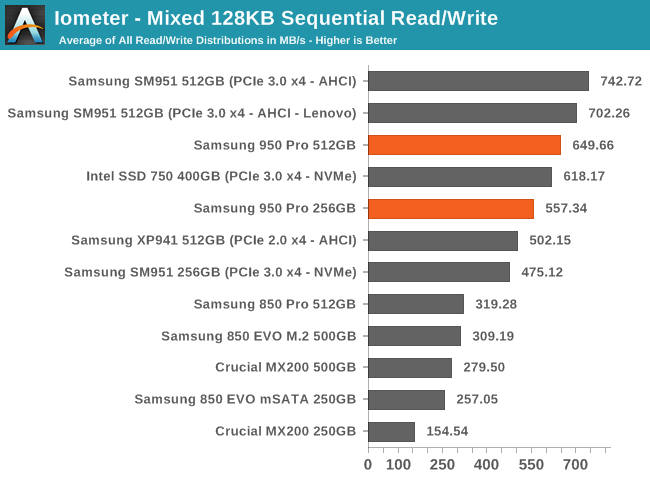
These sequential workloads allow the PCIe drives to stand out and achieve average speeds that would saturate SATA.
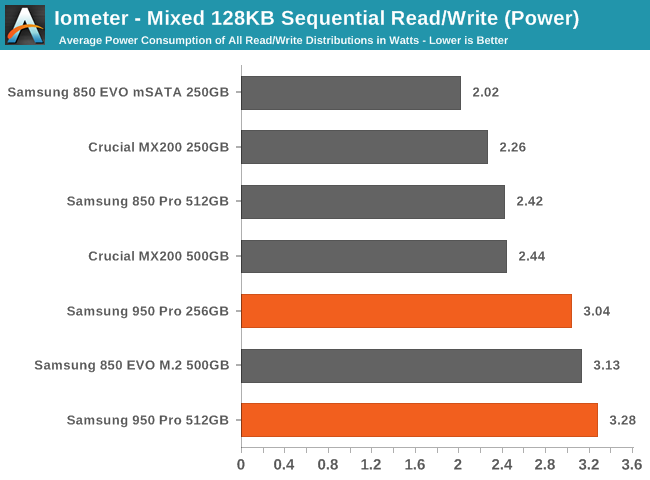
With power consumption in the same neighborhood as the SATA drives, the 950 Pro is significantly more efficient.
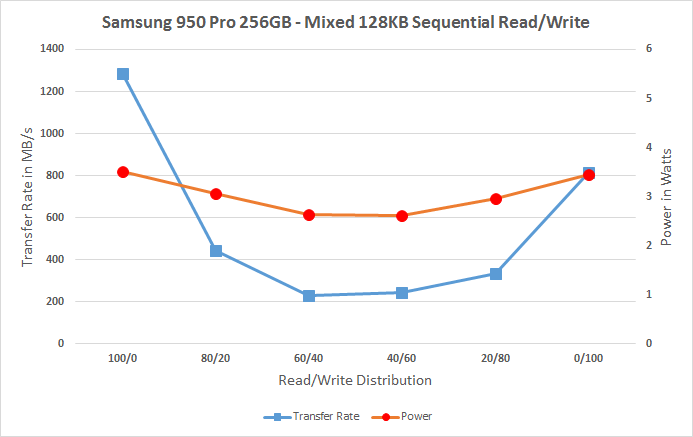 |
|||||||||
Looking at the breakdown by workload, the 950 Pro performs well on the balanced mixes and far outstrips the SATA limit on the very read-heavy workloads and the pure write section at the end of this test.










142 Comments
View All Comments
Gigaplex - Thursday, October 22, 2015 - link
It's unlikely Samsung is holding back, as the phenomenon is affecting all brands.ddriver - Monday, October 26, 2015 - link
Corporations do price fixing, why not performance fixing.niva - Wednesday, October 28, 2015 - link
It is possible to do performance fixing, but not likely in this case. Enterprise hardware should generally concentrate on endurance, probably using different binning and better memory. I'm sure they can beef up the drivers too and optimize for certain loads. In general they'll get the most sales by selling in greater numbers. Artificially limiting performance so they can make more profit margin on some (much smaller quantities) hardware being sold to enterprise doesn't make sense.That all being said I guess it is possible.
ShieTar - Monday, October 26, 2015 - link
Yes, there is a DRAM cache. The size of it is listed in the table on the first page of the article.Without this, random writes would still be horrible, as overwriting a complete 128KB block whenever the drive is supposed to write down just 4KB leads quickly to the need of reading, deleting & re-writing the blocks, as no unused 128KB-blocks are left.
Laststop311 - Tuesday, October 27, 2015 - link
its just part of how nand cells works. If you need faster speed 3d xpoint is coming to save the day.Per Hansson - Wednesday, October 28, 2015 - link
The DRAM cache is not used to cache writes.It's large size is mainly for the NAND mapping table.
If writes where cached in DRAM the performance of 4KB random writes would of course be waaay higher than what it is.
And quite extreme dataloss would occur in case of power loss.
virtualbigd - Wednesday, December 16, 2015 - link
Can you elaborate on your reliability point above, for Samsung?virtualbigd - Wednesday, December 16, 2015 - link
I know about 840 EVO, is there something else?Samus - Thursday, October 22, 2015 - link
I have my reservations over Samsung drives, especially since the 840 EVO, but DAMN.jay401 - Saturday, October 24, 2015 - link
Hey if you turn that V upside down, you have the first A-NAND SSD. :D